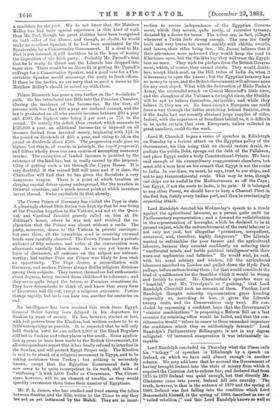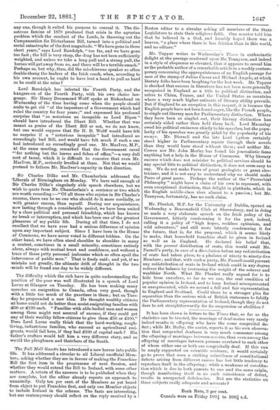Lord Randolph concluded on Thursday what the Times calls his
" trilogy " of speeches in Edinburgh by a speech on Ireland, on which we have said almost enough in another column. We may add here that he accused the Government of having brought Ireland into the state of misery from which it required the Coercion Act to redeem her; and declared that from 1875 to 1879 Ireland was quiet enough, but that directly Mr. Gladstone came into power, Ireland fell into anarchy. The truth, however, is that in the autumn of 1879 and the wing of 1880, Ireland was fast falling into the condition which Lord Beaconsfield himself, in the spring of 1 0, described as one of "veiled rebellion ;" and this Lord Randolph knows as well as
any one, though it suited his purpose to conceal it. The dis- astrous famine of 1879 produced that crisis in the agrarian problem which the conduct of the Lords, in throwing out the Compensation for Disturbance Bill, turned into a political and social catastrophe of the first magnitude. "We have gone in three short years," says Lord Randolph, "too far, and we have gone too fast ; the hill is very steep, the drag has not been sufficiently weighted, and unless we take a long pull and a strong pull, the horses will get away from us, and there will be a terrible smash." Perhaps so, but why, then, did the mischievous speaker so often .double-thong the leaders of the Irish coach, when, according to his own account, he ought to have lent a hand to pull as hard as he could at the reins ?







































 Previous page
Previous page